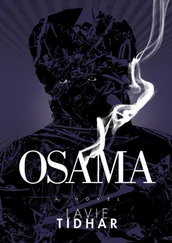He was coming back from the neighbourhood coffee shop, carrying his load of used aluminium cans and glass bottles. He had not been working for a long time now, preferring instead to collect newspapers, cans and bottles, all the disposable detritus of modern-day living in Singapore, in order to supplement his meagre income. He received about fifty dollars per month from all the collected objects, enough to buy himself simple daily essentials. The volunteers from the Moral Home Society would bring him food in the form of Khong Quan biscuits, Milo and instant noodles. Sometimes, the good-hearted Malay lady who fed the stray cats would bring him vegetables and fruit.
Lugging his full bag of cans and bottles, he made his way to his unit. It was a small abode, filled with stacks of newspapers and used appliances, not yet exchanged with the companies who made money taking in recyclables. He had decided to live here, ever since his wife had passed away and he chose not to live in an old folks’ home. He did not want to waste away in such a place. He no longer cared about his grown sons who had conveniently forgotten about him, except for in the Lunar New Year when they made a big show lavishing him with mostly useless gifts.
At first, he thought it was a bird—a mynah or a sparrow—caught in the thin wire nets strung up by the town council to deter any pests. They often did so, after receiving complaints from irate and tidy-minded people. He sighed, dropped his bag and walked towards the nets. He loved birds.
The winged creature was struggling itself into a spin, thin leg caught in the net. Birds often died that way and he buried them under the trees. It made no noise though, just a determined flap-flap-flap of wings.
He reached out to hold the bird… only to find that the bird was actually a little girl. Or that it looked like a little girl, clad in a peach-pink gossamer—like spider silk, he thought, amazed—dress. She had brown sparrow-like wings.
For a moment, he gaped, then backed away. Jing. Evil spirits. He was brought up with stories like that. Fairies and spirits were not often benevolent and kind-hearted in the myths and stories. They were chaotic little beings, mischievous at best, but more often capricious.
But he did not like seeing living creatures—jing or animal—suffering. Indecision warred with compassion. Compassion won—and he gently removed the thin wire netting from around the fairy’s ankle. The fairy rubbed her ankle, soothing the abraded skin, a pained expression on her thin face.
“Wait here,” he heard himself saying. “I will get some Tiger Balm for you.” And so in he went into his little dim housing unit, grabbed the half-used container from the broken shelf and hurried out, thankful that the fairy was still waiting for him. She leant wearily against the lamppost next to the bird trap. Her eyes were closed.
He dipped his little pinkie into the pungent minty ointment, scooped up a fingernail-sized amount and applied it, ever so gently, to the reddened skin. Even fairies get hurt, he thought, as the fairy evidently relaxed and gave a soft wince of relief. She exercised her sparrow wings and cocked her head to regard him. Like a bird. She looked vaguely Chinese.
“Thank you,” she said in a sweet piping voice, speaking fluent Cantonese. He blinked, surprised to hear his native tongue issuing forth from a little…fairy.
Before he could speak, uncertain of what to say, the fairy had already darted away, disappearing into the distance, a flash in the sunlight.
He certainly could not sleep that night, his mind filled with Cantonese-speaking fairies who looked like sparrows. Pulling himself out of bed, he began to sort through the bottles. He had a plan.
He had been a glass smith once, way back in the forties and fifties, when he was a young man, fresh from Guangzhou. He had apprenticed himself to a glass smith working in Zhujiang, then a rural area, now a thriving industrial town known for metal and steel work. He liked the look of glass, how it melted under extreme heat and how it would form into various shapes. How it shone under the sun.
He did not have the tools of the glass smith now, only a rusty hammer he had found discarded at the foot of the stairwell near his unit. With it, he began to break the glass bottles. He hoped the fairy and her friends liked the colours red, blue and green. He had rejected the Guinness Stout bottles because the colour of the glass was too dark, not bright enough.
Without the proper tools, his hands grew raw, cut by the sharp shards. He had to use sandpaper (salvaged from a carpentry shop) to smooth the vicious edges and even then, his fingers bled.
Then he used fishing string (again, from the same carpentry shop—the boss liked to do a fair bit of fishing) and threaded the glass pieces with it, looping and tying them so that they stayed secure. It was delicate work. The fishing string was thin, like the bird trap wires. He rued his clumsy fingers, no longer nimble for such fine and delicate crafting.
In the morning he hung the first wind-chime up on the jambu tree, where he spotted yet another bird trap. The wind-chime tinkled in the morning breeze, glittering red-blue-green-transparent on the low-hanging branch.
“Uncle.” A boy stopped in his tracks, his bicycle squealing to a halt. “What are you doing?”
“Entertaining the fairies,” he answered, watching the wind chime sparkle in the sun.
For every bird trap he discovered, no matter how discreet and well hidden the officers of the town council had meant them to be, he made a glass bottle wind chime.
One evening, when he was about to make some broth out of instant noodle soup mix (the Malay lady had not visited him in some time, as she was busy with her family) the fairy appeared with another fairy. They carried, with some difficulty, a plastic bag filled with fried chicken wings. He stared as they placed it almost reverently in front of him before they flew off, laughing gaily. He cautiously peeled open the bag and the delicious aroma of freshly fried chicken plumed forth, bathing his face in oily fragrant steam.
The fairies continued to bring food every week. They carried in pok choi, string beans, chye sim and assorted root vegetables like muang kuang and sweet potatoes (his personal favourite—steamed or boiled). He did not know how they managed to collect all these vegetables. Perhaps they salvaged them from the wet market that sold fresh vegetables and produce. He was grateful for their kindness, for their generosity. In return, he made more of the glass-bottle wind chimes. His hands bled but he did not care. He woke one day to find that the fairy had left him a small tube of cream for cuts and bruises
The wind chimes seemed to capture the attention of the apartment dwellers. Children often stopped and watched the glass bits stirring in the breeze. Sometimes they stole the wind chimes, and yet he did not get angry. Instead, he made more wind chimes, breaking the glass bottles at night and tying the glass shards with fishing string.
Some parents became concerned and they wrote to the town council about the weird and violent old man who broke glass at night. Please send down police, they requested urgently. Or people from the IMH. We are afraid he might hurt our children with his broken glass.
Trying to placate the residents and wanting to be seen to be doing its job, the town council sent officers to knock on the old man’s door and slip warning notices through the gap, hoping he would read them. But he simply threw them away and went on making the wind chimes. The IMH—the Institute of Mental Health—sent in volunteers, too, but they were ignored by the old man.
It was two days before the Hungry Ghosts’ Festival when the smooth glass pebbles started appearing in little plastic bags. He had noticed his unfinished glass shards disappearing a couple of weeks ago and was concerned because he had to make the wind chimes for the fairies. The glass pebbles intrigued him. Someone had smoothed the edges, made the glass pleasant to the touch. He made wind chimes out of these glass pebbles and hung them on the trees. The music they made was different from the sharp-edged glass shards. Softer, sweeter, lighter.
Читать дальше












